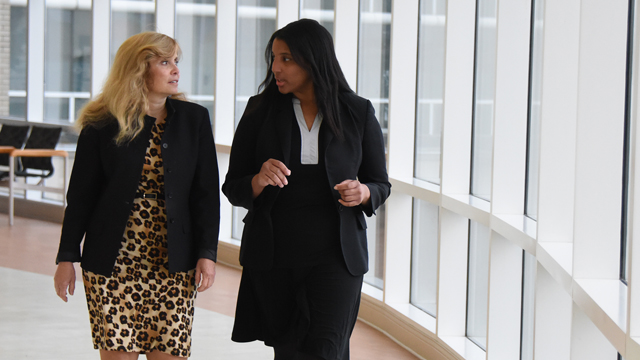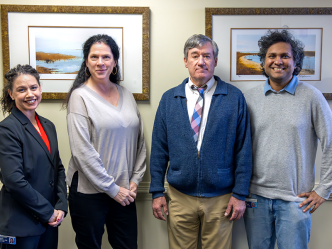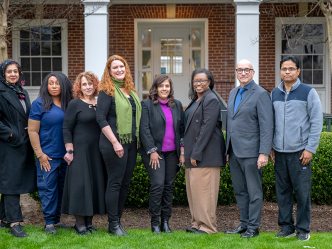AUGUSTA, Ga. – A low-salt diet does not necessarily translate to stronger bones in postmenopausal women, physician-scientists report.
“When we started the study, we thought we were going to be telling everyone again that a low-salt diet is good for your bones,” said Dr. Laura D. Carbone, chief of the Section of Rheumatology at the Medical College of Georgia at Augusta University.
“Instead our message is low-sodium intake by itself is not likely to be beneficial to your bones. We definitely don’t want to go further than that and say high sodium is good for them,” said Carbone, corresponding author of the study in the Journal of Clinical Endocrinology & Metabolism.
The association of high sodium intake and weaker bones seems logical. Sodium and calcium are both stored in the bone. Sodium increases calcium excretion and low calcium is associated with low bone mineral density, an indicator of fracture risk. While calcium can’t really be added to bone after the teen years, it can continue to follow sodium out of the bone and into the urine lifelong.
While current sodium intake guidelines are aimed at cardiovascular health, the National Osteoporosis Foundation also recommends a low-salt diet for bone health. The new surprising results indicate the need for a large, prospective study to really parse whether salt intake is good, bad or indifferent for women’s bone, Carbone said.
MCG physician-scientists looked at data on nearly 70,000 postmenopausal women followed for 11 years as part of the Women’s Health Initiative, or WHI. WHI is a long-term National Institutes of Health-funded study of more than 160,000 postmenopausal women focused on ways to prevent heart disease, breast and colorectal cancer, and osteoporosis. They had fracture data on all the women included in their assessment and bone mineral density studies, an indicator of bone strength, on about 4,400.
They found a bit of a mixed bag that seemed to indicate salt intake was not a major factor in bone health. The study actually showed some association between a higher-salt diet and stronger bones, including higher bone mineral density throughout the body and fewer hip fractures. When they adjusted for body mass index, or BMI, a measure of fatness, as a known influence of bone strength, they found no association between sodium intake and bone mineral density anywhere or with fractures rates. Higher BMI and being black, for examples, are both factors generally associated with stronger bones. Higher BMI also is associated with higher sodium intake.
Menopause and aging also are both associated with weakening bones, times when more bone is resorbed than made. Higher calcium intake is believed to aid bone strength by decreasing the number of osteoclasts, which destroy bone, and increasing bone-making osteoblasts.
Possible explanations for the surprising findings go back to the body’s natural mechanisms for keeping adequate blood and oxygen flowing throughout. When sodium intake drops, this renin-angiotensin-aldosterone system gets activated, which, at least in experimental models, has been shown to increase bone resorption.
A prospective study will enable more detailed examination of sodium intake, including periodic measures of sodium levels in the urine on some holidays and weekends, times when sodium intake tends to increase for most people, Carbone notes. The WHI nutrition data comes largely from the women’s self-reports, with a correction factor applied based on the few who did have their urine tested for sodium levels.
The MCG team says that a diet high in calcium – including foods such as milk, yogurt, cheese and some green, leafy vegetables – and staying active are definitely good for the bones at any age.
The National Osteoporosis Foundation recommends limiting the intake of processed and canned foods, which are typically high in salt, as well as the salt you add to food. It recommends limiting salt intake to about 2,400 milligrams daily, which is about the same level as federal nutrition guidelines.
 Augusta University
Augusta University




